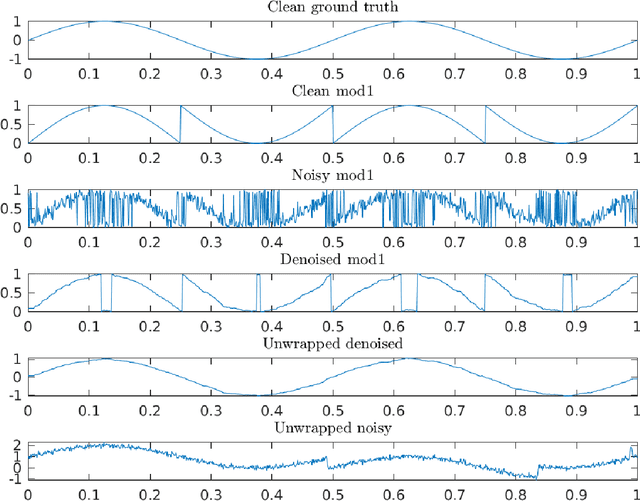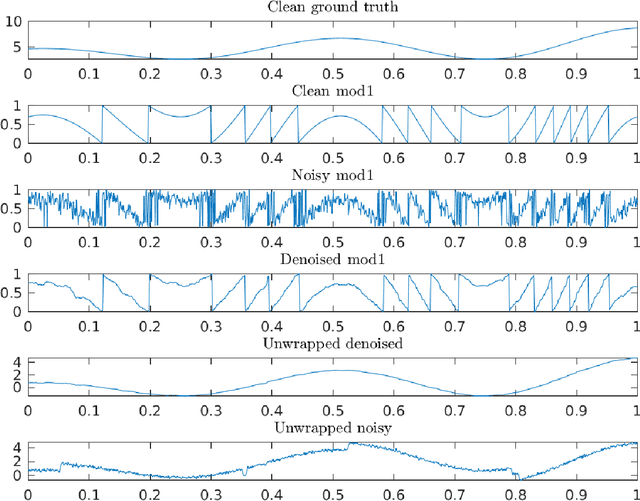Denoising modulo samples: k-NN regression and tightness of SDP relaxation
Paper and Code
Sep 10, 2020



Many modern applications involve the acquisition of noisy modulo samples of a function $f$, with the goal being to recover estimates of the original samples of $f$. For a Lipschitz function $f:[0,1]^d \to \mathbb{R}$, suppose we are given the samples $y_i = (f(x_i) + \eta_i)\bmod 1; \quad i=1,\dots,n$ where $\eta_i$ denotes noise. Assuming $\eta_i$ are zero-mean i.i.d Gaussian's, and $x_i$'s form a uniform grid, we derive a two-stage algorithm that recovers estimates of the samples $f(x_i)$ with a uniform error rate $O((\frac{\log n}{n})^{\frac{1}{d+2}})$ holding with high probability. The first stage involves embedding the points on the unit complex circle, and obtaining denoised estimates of $f(x_i)\bmod 1$ via a $k$NN (nearest neighbor) estimator. The second stage involves a sequential unwrapping procedure which unwraps the denoised mod $1$ estimates from the first stage. Recently, Cucuringu and Tyagi proposed an alternative way of denoising modulo $1$ data which works with their representation on the unit complex circle. They formulated a smoothness regularized least squares problem on the product manifold of unit circles, where the smoothness is measured with respect to the Laplacian of a proximity graph $G$ involving the $x_i$'s. This is a nonconvex quadratically constrained quadratic program (QCQP) hence they proposed solving its semidefinite program (SDP) based relaxation. We derive sufficient conditions under which the SDP is a tight relaxation of the QCQP. Hence under these conditions, the global solution of QCQP can be obtained in polynomial time.
 Add to Chrome
Add to Chrome Add to Firefox
Add to Firefox Add to Edge
Add to Edge